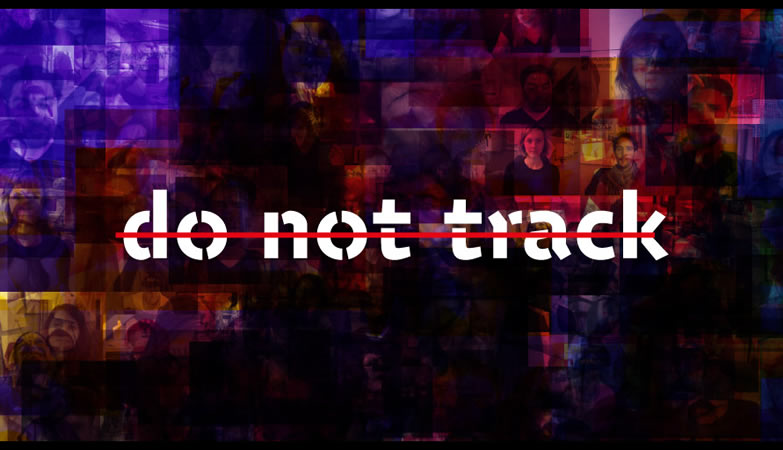Does ‘Do Not Track’ protect your Online Privacy?
James Patterson | Last Updated:
Online Privacy & Internet Security Expert

Not everyone likes being monitored online. Some people prefer to stay off the radar completely. If you are an internet expert, you understand what it means to be tracked while online. Advertising companies have a strong finanical motivation to keep tabs on your every move and then build a digital profile on you. If you don’t mind being followed online, that is totally up to you.
Do Not Track is a way of telling the websites you visit, the advertisers on that website that you don’t want to be tracked and would like to stay off their radar. Without “Do Not Track,” you allow intruders into your online data. They collect your user activity on the World Wide Web and build a profile on you.
The DO NOT TRACK Initiative
Tracking is the collection, sharing, and retention of individual user activity data across several websites. Do Not Track was initiated by Sid Stamm, Dan Kaminsky, and Christopher Soghoian. Do Not Track is a feature that is used to online trackers from tracking activities.
With the DNT mechanism, users are allowed to maintain their privacy while they have control over who gets access to track their data. Mozilla Firefox was the first browser to implement this mechanism, later browsers like Internet Explorer, Google Chrome, Opera and others then added the feature. However, efforts to standardize the Do Not Track preference did not pass the recommendation stage and end in 2018.
Although not all trackers like the idea, trackers who love it get quality information about their audience, they get the necessary access and fight off any issue that may arise from a complaint about privacy intrusion. With more simplified targeting, advertisers will be paying more to access data networks.
Does It work?
In short, the answer is: No.
To get some perspective on this, it’s useful to take a step back and look at the history of the Do Not Track initiative.
When the idea was first conceived, it indeed did seem like a great proposal. The Do Not Track identifier would be included in the page Header, and websites would view that information and respect the users request not to be tracked. Sounds, great in theory – right? Unfortunately its not that simple.
Windows 8.1 actually shipped with Do Not Track turned on by default. This was a great start for the Do Not Track initiative. But unfortunately, the big global advertisting companies got together and lobbied the US Federal Trade Department and the World Wide Web Consortium (WC3) to make the Do Not Track initiative non binding. Microsoft soon felt the pressure and capitulated themselves. As result, in Windows 10 you need to turn on Do Not Track – it is not enabled by default.
Nonetheless, despite the lack of support from Microsoft and other large corporations, the truth remains that most advertisers simple do not respect the Do Not Track identifier in any case.
So What Can Be Done?
At the browser level are still several things that you can do to protect you online privacy. These include:
- Set your browser to Reject Third Party Cookies. Its generally ok to accept cookies from the website you are currently visiting as it can help with your user experience, but cooking from 3rd party advertising websites are an invasion of your privacy and help advertising companies build a digital profile on you.
- Use a browser extension to block trackers. Privacy Badger is one of our favourite browser extensions that automatically learns to block invisible trackers.
- Use a web browser that respects your privacy: Firefox, Epic and Dragon are a few of our preferred choices in this regard.
Top 10 Controversies on the Internet
- Cyberstalking: Also known as catfishing, refers to a situation where someone assumes a different personality on the internet to lure people into meeting them for real. The meet up could end up into abduction, assault, or even sexual harassment in some cases.
- Sexting refers to people exchanging explicit contents on the internet. It is often used by teens and young adult to impress their crushes, boyfriends or girlfriends, especially on snap chat. Pictures or videos sent during the conversation can be leaked online for anyone to see.
- Cyberbullying involves all forms of name calling, humiliating status, and insulting pictures, which may cause psychological damage to the victim.
- Revenge porn is a situation where partners from the previous relationship share sex videos, pictures, or other media online with personal information as a means of taking revenge on them.
- They are obtaining peoples information illegally by prompting them to click on links pretending to be from a legitimate site. Credit card information and address are the most common info gathered by phishers.
- Hacking, breaching, stealing protected information and passwords from popular sites like PayPal, Gmail, and Dropbox, etc.
- Cybercrime: Just like the internet makes it easier to do good It also more easier to do wrong too. Cybercrime like underage porn users, terrorist threat, and murderous plans. Next time you see you see suspicious activities on the internet, be sure to report.
- Internet addiction.
- Inappropriate social media behavior and posting mean comment.
- Inappropriate and use of the deep web for frivolous transactions.
How to Activate the DO NOT TRACK feature in Firefox
On Mozilla Firefox, the DO NOT TRACK feature is turned off sometimes by default except in the Private Browsing mode where it is turned on by default. Below is how to enable the DNT feature:
- Click on the menu tab and select “Content Blocking.”
- This process takes you to the “Privacy and Security” options panel.
- Scroll down until you can see “Do Not Track” with the option that you don’t want to be tracked, click on “Always.”
- Close the tab and the changes will take effect immediately.
PRIVACY ALERT: Websites you visit can see your current IP Address:
- Your IP Address: 18.118.1.158
- Your Location: Dublin, US
- Your Internet Provider: Amazon.com, Inc.
* Scammers, Governments, and Advertisers can use this information to track and target you.
Our recommended vpn service provider for general all-round internet security and online privacy is ExpressVPN. It offers an excellent selection of online security and internet privacy features, excellent speed, and the ability to unblock your favorite streaming services (Netflix, Hulu, Amazon Prime, BBC iPlayer).
Visit ExpresssVPNCategories: Guides

